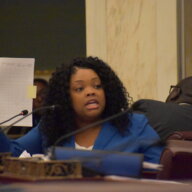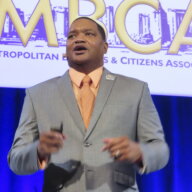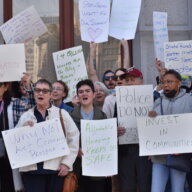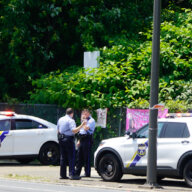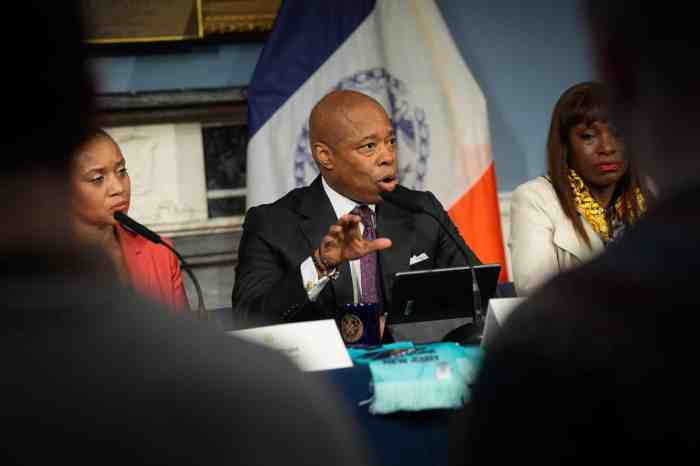>> Councilwoman Jannie Blackwell’s resolution authorizing a committee to hold hearings about the impact of Mayor Michael Nutter’s controversial public feeding ban finally passed after being held on several dates.
>> Councilman Jim Kenney introduced legislation that would make it easier to recoup fees if your car is towed in error. Right now, residents have to go to Traffic Court to get towing and storage fees lifted and then to the Bureau of Administrative Adjudication to actually get those fees back. Kenney’s proposed ordinance would make reimbursements automatic.
>> Council passed a resolution sponsored by Councilwoman Marian Tasco urging the Pennsylvania General Assembly to oppose House Bill 2191, which would legalize payday lending in the state. The legislation passed the House Consumer Affairs Committee yesterday by a vote of 20 to four.
Payday lending consists of small loans that have triple digit interest rates, require a postdated check or preauthorized electronic transfer to insure and must be fully repaid, including interest and feeds, by a person’s next paycheck, often leading to an inescapable cycle of debt.
“I have been an outspoken critic of predatory lending; however, after a period of reflection on this issue my position has evolved. People of all income brackets, including low income Philadelphians, should have right to take out predatory loans if they choose,” Tasco said to a dead silent room, going on to rescind her “patronizing” attitude.
“Now let me take the opportunity to refute everything I just said,” she continued. “I joke because recent legislative action on this issue is a joke on our citizens. Predatory lending is one of the reasons for the downturn in the housing market that caused one of the worst recessions since the Great Depression. … Further allowing people to take out predatory loans is the exact opposite of allowing people consumer protections.”
“The water must be different in Harrisburg. I do not understand it.”
>> Councilwoman Blondell Reynolds Brown introduced a bill that would change how the city awards contracts by doubling the bidding preference for Philadelphia-owned firms from five percent to 10 percent. “The ideal model for generating more revenue for city is not raising taxes, but creating more taxpayers through local job creation,” she said.
“This measure will help tilt the scale to the local firms, ensuring Philadelphia taxpayer dollars are going to support Philadelphia companies, creating jobs and growing the local economy.”
>> Council members sounded off about this week’s budget hearings, namely those involving the School District and the $94 million the administration is proposing it receive in additional revenue through a shift to property tax assessments based on their full market value. “Truth be told, they [the SRC] want us to invest $94 million to get more promises that we have no accountability for,” Councilman Curtis Jones Jr. said.
“The state must help us do the heavy lifting of this $94 million shortfall we have to come up with.” He said that the $11 million that the schools may receive from a newly-revised state budget currently on the table is “like me telling my daughter who comes up to me and says, ‘Pop, I’m a little light on rent, I need $300,’ and I put $11 on the table. That does not add up.”
Councilman Wilson Goode Jr. struck a more conciliatory tone. “The district based their budget and five-year plan on the mayor’s and state budget. They did not request a $94 million tax increase,” he said. “They want property assessments based on actual values because that has not happened in several years and they have not gotten more money in several years. … The School District is simply asking us to do what we said we were going to do.”
He said that the School Reform Commission should receive the funds, but if they return within a five-year period asking for more, local control should be restored to the body.
“The School District did, of course, simply base their budgeting on what mayor and governor put in their budgets, but I think
something that has been missing in this respect is accountability for
the appointing authority of people who represent the mayor and governor on the SRC,” Councilman Bill Green shot back.
“It is the fault of the mayor and governor that they need additional revenue from the city of Philadelphia. It’s been a week of lack of accountability for those responsible for district, with City Council once again on the fire line.”
He said that council members are being asked to risk their reputations by
making budget decisions based on uncertain information, while those
appearing before them to testify about those decisions refuse to take
the same risks.
>> Green also blasted how the Actual Value Initiative has been presented to the public by both the administration and the press, who he said are oversimplifying the issue and missing the point: an overall lack of information about aggregate property values in the city and a tax burden shift that will disproportionately weigh on residential property owners as opposed to commercial property owners, who will actually pay less in property taxes than they do now, according to Green.
“The public has no idea what’s coming. Commercial and industrial property owners have no idea what’s coming,” he said. “… There will be a massive shift from the commercial and industrial sector in the order of hundreds millions of dollars.”
“If commercial and industrial businesses are going to get a windfall in the face of a tax increase, we need to do something about that.” He suggested “drastically” increasing the homestead exemption or considering a tax that can be applied only to commercial and industrial properties.
“I hope we get additional information and the public begins to understand that they are paying the lion’s share to this shift to AVI and it is up to us to protect them with the full support of this administration,” he said.









